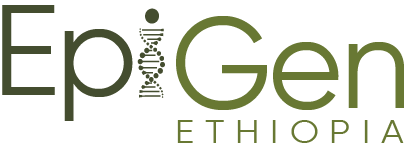EpiGen Ethiopia Researchers Co-Authors to Publication Focused on COVID Wastewater in Ethiopia
Members of our EpiGen Ethiopia project co-authored a significant study published in Frontiers in Public Health that highlights the value of wastewater-based epidemiology (WBE) in tracking the spread of SARS-CoV-2. This research, conducted across three wastewater treatment plants (WWTPs) in Addis Ababa, presents crucial insights into the prevalence of COVID-19 in the community, especially as clinical case reporting underestimates actual infection rates.
The paper is a product of an on-going wastewater-based surveillance project of which members of the EpiGen Ethiopia team are also part. This work continues to shed light on the intricate connections between health and environment, highlighting the importance of the One Health approach. It also helps the researchers working on the EpiGen Ethiopia project by helping build foundational work and may even foster future collaborations.
Key Findings:
The study utilized the Moore swab sampling method to monitor wastewater at Kality, Bulbula, and Mikililand WWTPs between February and November 2023. It detected SARS-CoV-2 RNA in 94% of the untreated wastewater samples, revealing a much higher prevalence of COVID-19 than reported through clinical testing. Notably, it was found that the estimated number of infected individuals in the Kality catchment area was 330 times the officially reported COVID-19 cases, underscoring the high proportion of asymptomatic cases in the region.
The viral RNA was largely absent in treated effluent samples from Kality and Bulbula WWTPs, indicating the effectiveness of the wastewater treatment technologies at these sites. However, some samples from Mikililand, which uses a different treatment process (stabilization pond), still tested positive for SARS-CoV-2, highlighting areas where wastewater treatment may need improvement.
Correlation with Clinical Data:
Interestingly, the study found that increases in SARS-CoV-2 viral load in wastewater preceded spikes in clinical cases by 7-14 days, showcasing WBE’s potential as an early warning tool for impending outbreaks. This predictive capability can be invaluable for public health officials in resource-limited settings like Ethiopia, where access to clinical testing is constrained.
Implications for Future Public Health Surveillance:
This research demonstrates that WBE is not only a feasible but also a cost-effective method for monitoring infectious diseases in low-income settings. The findings support the continued use of WBE for COVID-19 surveillance and its potential application to other infectious diseases in Ethiopia. The study concludes that wastewater surveillance can provide vital epidemiological data to help control future outbreaks, particularly in communities with limited access to healthcare infrastructure.
Acknowledgments:
The research was conducted by a collaborative team, including our EpiGen Ethiopia project members, and supported by several partners, including The Association of Public Health Laboratories and Africa CDC. Their contributions have been instrumental in establishing wastewater-based epidemiology as a reliable surveillance tool in Ethiopia.
This study offers a model for expanding public health monitoring and preparedness across Africa. For more details, you can access the full article (Open Access) on Frontiers in Public Health.

